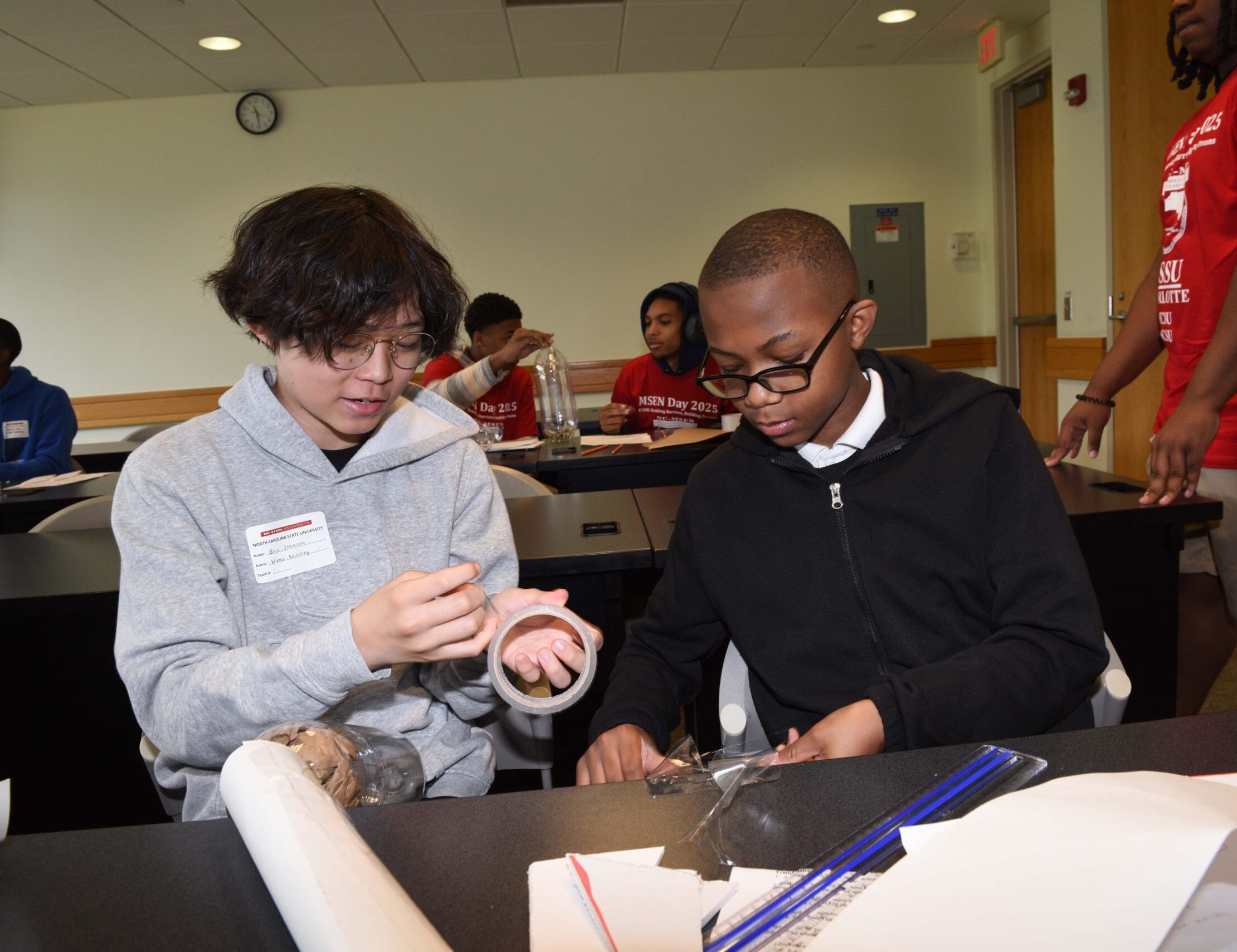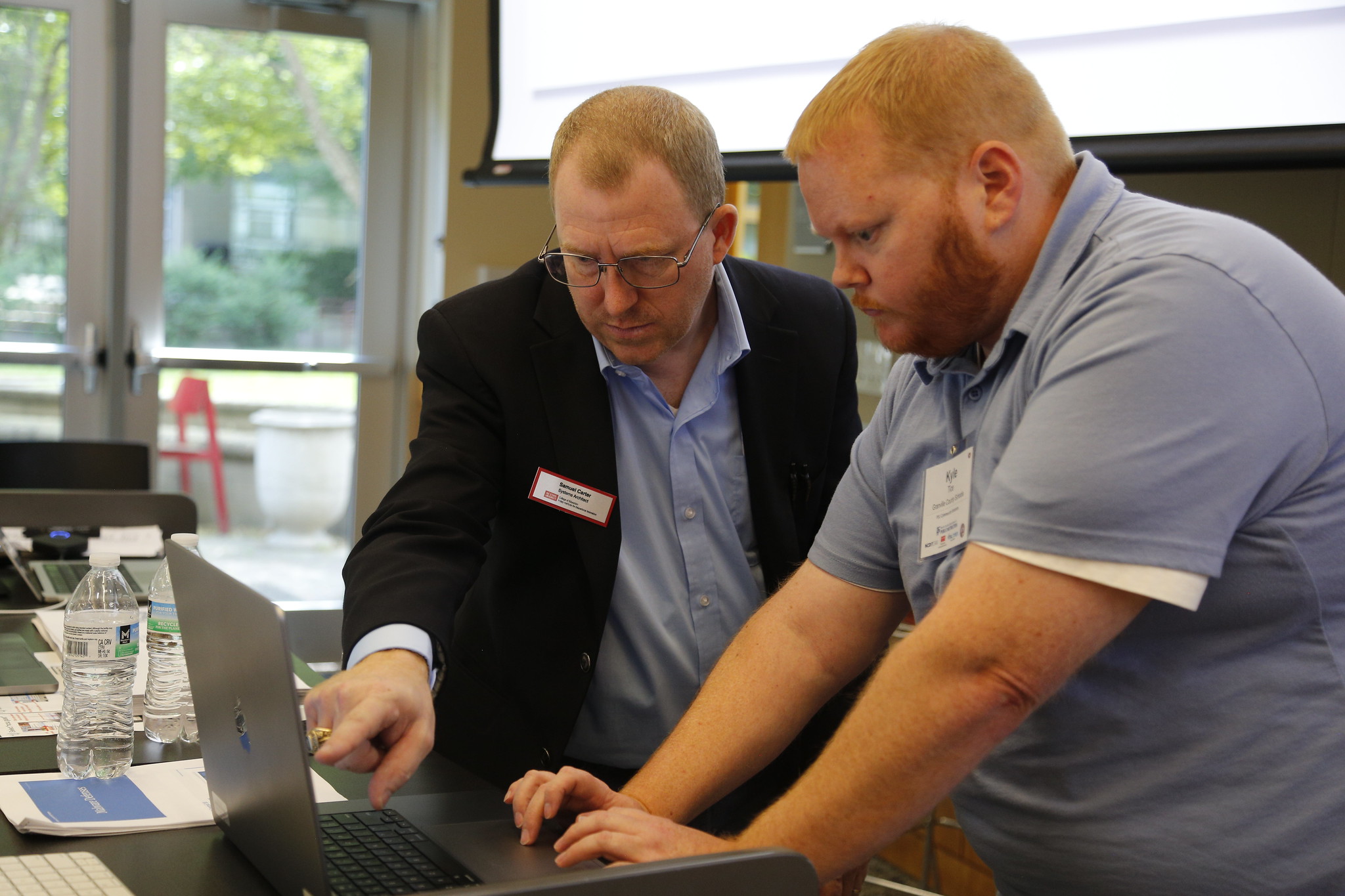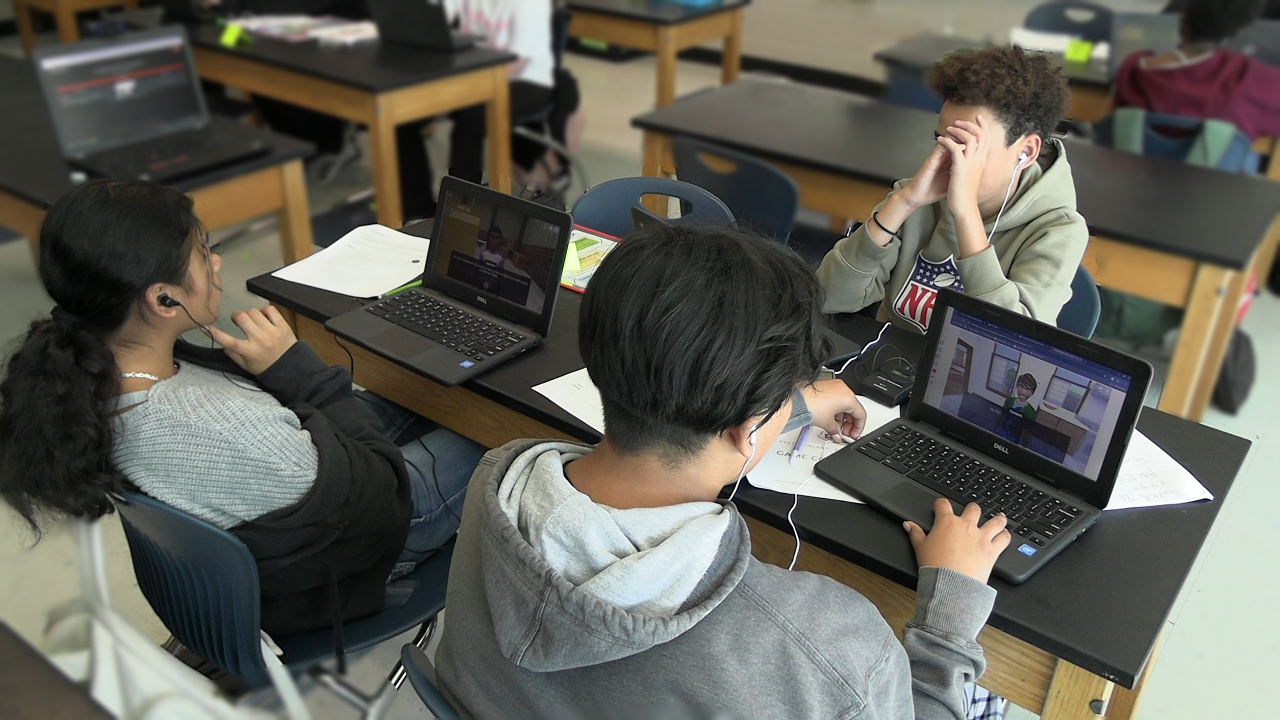LASER Institute Aims to “BEAM” Learning Analytics to New Institutions
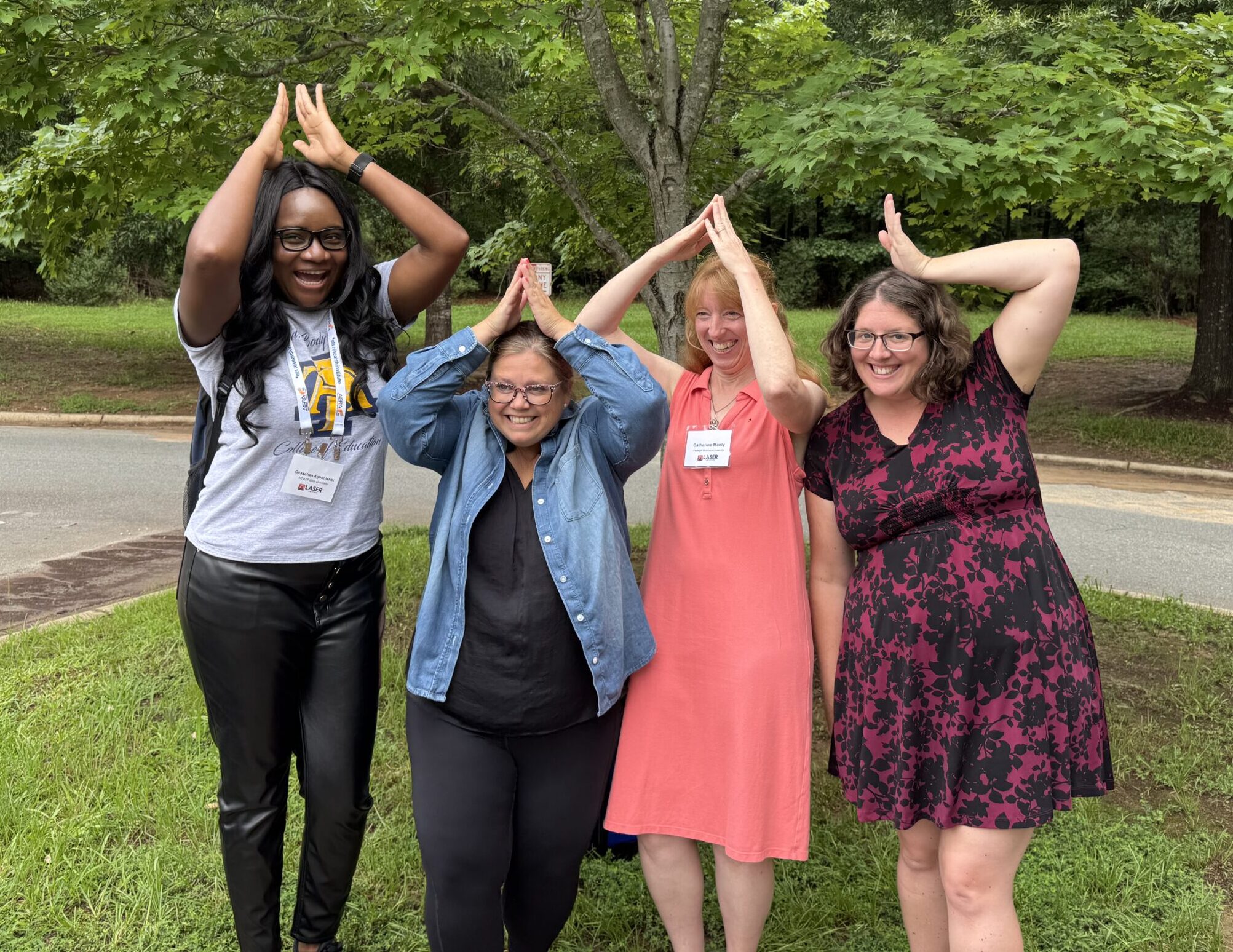
The first time Rogers Bhalalusesa went to the U.S. was when he traveled more than 8,000 miles from Tanzania to Raleigh, North Carolina, to build his skills in learning analytics. Bhalalusesa is a scholar of the Friday Institute for Educational Innovation’s Learning Analytics in STEM Education Research (LASER) Institute, which aims to increase the number of education researchers capable of leveraging new sources of data and applying data-intensive research methods to understand and improve student learning. The LASER Institute team held its weeklong summer workshop at the Friday Institute July 22-26.
The new phase of the LASER Institute, called LASER BEAM (Broadening Education in Advanced Methods), seeks to expand the impact of its previous National Science Foundation (NSF)-funded project. In addition to supporting scholars in developing the knowledge and skills necessary to incorporate new methods into their education research, LASER BEAM aims to broaden the program’s impact by supporting scholars in developing an instructional plan to incorporate LASER curriculum modules into graduate-level programs, courses or workshops at their home university or research institution. It is a collaborative partnership between education faculty from NC State University and the University of Pennsylvania, with additional support from the University of Tennessee, Knoxville.
“It’s been great to work with Shaun and Josh and our colleagues at NC State,” said Ryan Baker, lead of the University of Pennsylvania team working on LASER BEAM and professor and director of the Penn Center for Learning Analytics. “We focus on different areas of learning analytics, so we can come together to give students a more in-depth and focused take on specific areas of the field than either of us could do alone.”
The intensive, in-person summer workshop included differentiated learning modules, pedagogy and design sessions, and community-building activities to support scholars in their own professional learning and help them to develop an instructional plan for teaching others. During the academic year, ongoing support will be provided through an online community to help scholars continue their professional learning and ensure they can successfully carry out instructional plans at their home institutions.
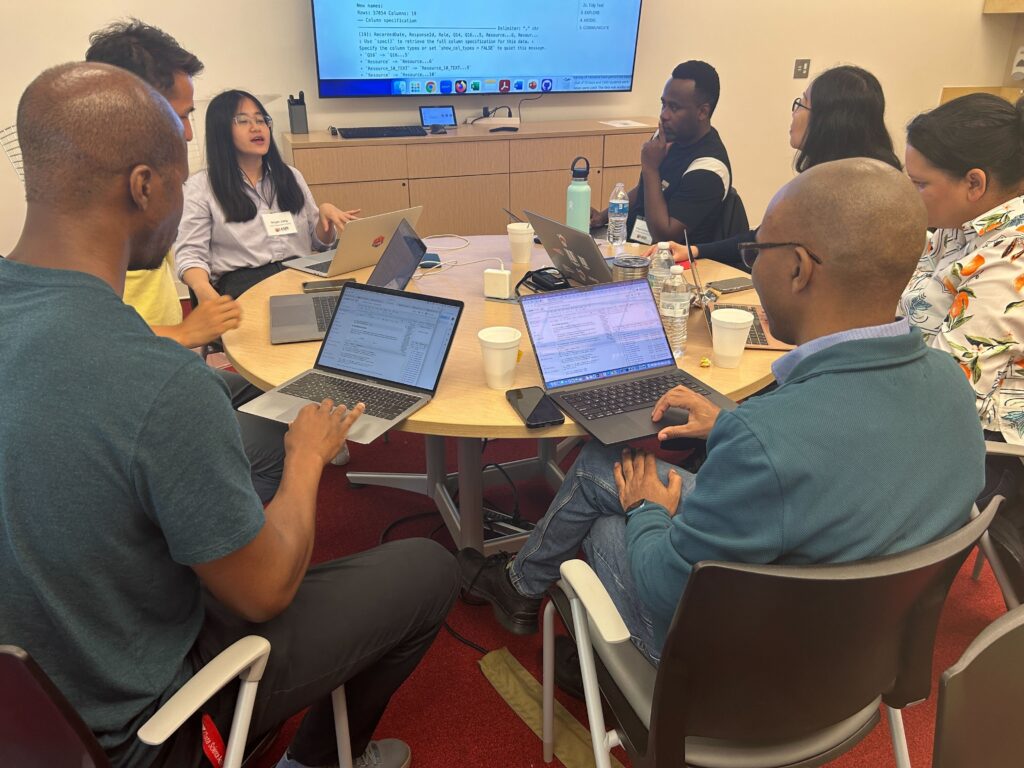
“LASER BEAM is an exciting development in our work supporting STEM education researchers both nationally and internationally.” said Shaun Kellogg, principal investigator and the senior director of the Learning Analytics and Data Science team at the Friday Institute. “I think it speaks highly of our original program’s success that NSF was confident in funding another three years of the work. We took a bit of a risk proposing something that was a little unorthodox but uniquely innovative for the BCSER [Building Capacity in STEM Education Research] grant program, but NSF clearly saw the value in broadening the potential impact of LASER at the institutions of those directly participating in the program.”
Much like the first phase of the LASER Institute, scholars will learn how to apply learning analytics in support of their own research in practical, relevant ways. Curriculum includes carefully scaffolded instructional activities that will be used to train scholars in advanced methods such as machine learning, network analysis, knowledge tracing and text mining.
“Everything here seems to be applicable to my work because I have student learning data,” said Zarifa Zakaria; a postdoctoral scholar at the NC State Data Science Academy. “At LASER Institute, it is so much more relevant because the examples and techniques they’ve been showing here is with the data that people like me are actually working with. I can relate so much more. Whereas, in general, method workshops that I have been to are so generalized, and I have to think about how to connect it to my education field.”
This new phase of the program will allow scholars to incorporate what they’ve learned into an instructional plan to teach others in their home institutions. Kuang Li, an academic researcher in the Professional Development & Postdoctoral Affairs Office at Boston University, plans to incorporate the LASER curriculum into her office’s Ph.D. Progression micro-credentialing program by spring 2025. This online training program offers modules, or badges, to support Ph.D. students in their career and professional development journeys before and after their Ph.D. programs.
“I envision our Level 3 Research Skills pathway to include four tracks—supervised machine learning, text mining, knowledge tracing and social network analysis—each corresponding to a topic within the LASER curriculum,” said Li. “The LASER curricula are presented in accessible language with step-by-step, hands-on concrete examples. This really flattens the learning curve for students who are equation-phobic or want to advance their research skills but are often intimidated by more advanced methods courses.”
Continuing the LASER program also has allowed scholars to learn even more about learning analytics and feel confident to incorporate the topic into their work. Mia Williams is a return scholar who was part of a previous cohort of the LASER Institute.
“I think, one of the things with the current program and that emphasis on being able to teach it to somebody else, that is one of my strengths in learning. Like, if I have to teach it, then I’m going to be able to learn it and figure it out, and so it goes beyond using it,” said Williams, assistant professor of learning design and technology at the University of Wyoming. “That opportunity to just strengthen my knowledge and to be able to work with others, especially my students and my programs, I think that was my motivation. This year, I feel like that opportunity to really focus on one thing and dig in deep with it has been amazing…I’m feeling much more confident about my knowledge, and I’m excited to be able to take it back and plan things to share with my students, colleagues, if they’re interested. I feel excited about this work.”
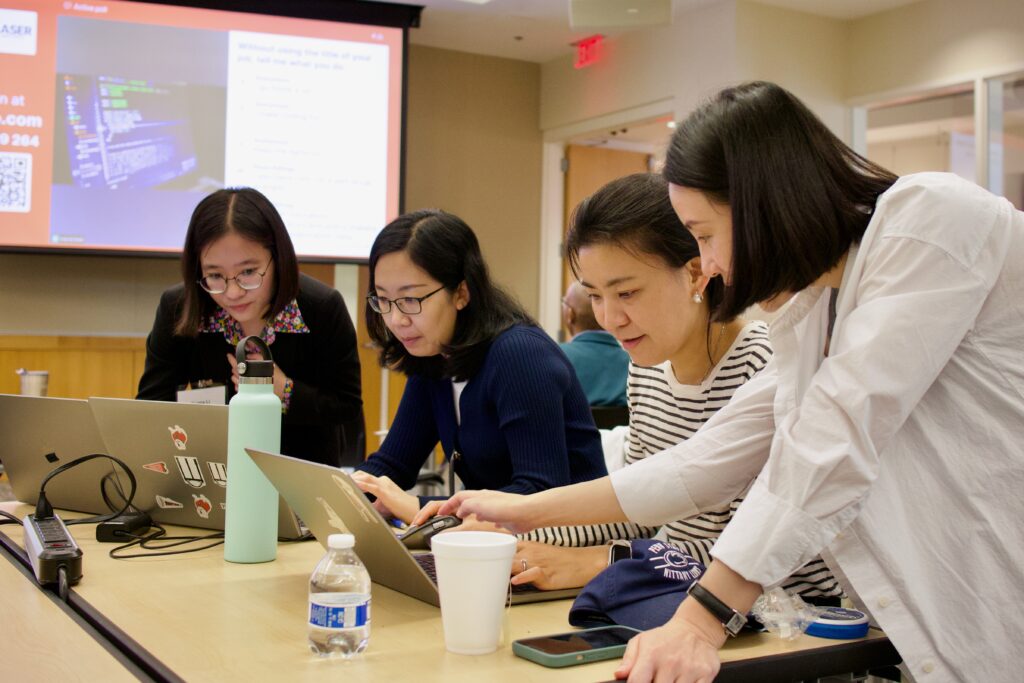
The program has also allowed scholars to cultivate their community as they spend more time with each other. Catherine Manly is another scholar who has joined the program for another year.
“I’m super excited about being here at the LASER Institute this year with the focus on bringing these materials into our teaching and the ability to have this supportive network to help me do that,” said Manly, an assistant professor at Fairleigh Dickinson University. “What I’ve enjoyed about LASER is the network of people and the ability to ask questions and feel like I’m not just out swimming alone. I have people that I can draw upon when I need to.”
As scholars head back to their home institutions this fall, they hope to spread the knowledge they’ve gained in their work and with others to have a bigger impact on the field and the community.

“Learning analytics is a community, and the more we build it, the more people involved, is going to have a bigger impact,” said Bhalalusesa, a lecturer from The Open University of Tanzania. “It’s not only about people with an IT background because learning analytics is more to do with how we can use data, and we can use all these learning processes to help students learn. So it’s about the teachers; it’s about the students. When we look at it from that angle, it’s going to help everyone. So we should try to reach more and more people, and more people should try to join in, regardless of their background, because as long as they have an interest in teaching, then it’s going to have an impact to them.”
- Categories:
